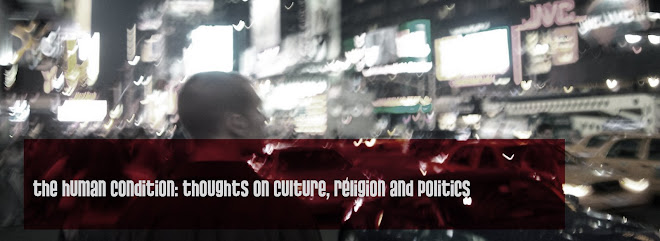Christianity teaches that humans are fundamentally broken or sinful. People exhibit this brokenness on an individual level and also on an institutional, cultural and societal level. In Romans chapter 5, the the apostle Paul describes how sin started with one person and spread to the entire world. Paul then compares Adams sin to Christ's death saying that Christ's single act of righteousness extends to all. So, in other words, Christ reverses the curse. At one point Boyd quotes Revelation 11:15 which says that the kingdom of the world has become the kingdom of Christ. Boyd uses this verse to argue that the kingdoms of this world are in the process of being handed over to Christ. So, right now, the kingdom of God is invading earth.
Going back to the Romans 5 analogy, if sin starts individually and spreads to institutions and governments, then isn't the reverse true? Redemption starts individually and spreads to institutions and governments and politics. If this is true, then wouldn't that mean Satan is less in control of the "kingdoms of this world" than he was in Paul and Christ's day. And if so, what does that mean for Christians engaging in politics? On that, Boyd takes a very separationist point of view. But I'm not so sure that I do.
-------------------------------------------------------------------------------------------------
The second distinction Boyd makes is that kingdoms of the world are “power-over” kingdoms, while the kingdom of God is a “power-under” kingdom. Power-over refers to the government's use of punishment to rule its citizens. Behavioral change is achieved by force from the outside, so a power-over kingdom rules over its people. But the kingdom of God is a power-under kingdom, changing people from the inside out. Citizens of God's kingdom come under people in loving acts of service. According to Boyd (2005), “The cross is the ultimate symbol for the kingdom of God, for it defines what the kingdom always looks like. It looks like Christ – self-sacrificial and loving. It looks like grace (p. 33).” Boyd concludes that one either places his or her trust in the use of force and coercion, or one places his or her trust in the Spirit, working through Calvary-like love to change people from the inside.
Because America is clearly a power over-kingdom, it cannot be, nor ever have been, a Christian nation. The role of the Christian in politics, therefore, is not to fuse God’s kingdom with a kingdom of this world, but to live out the unique kingdom of God in its midst. This happens when Christians submit to Christ’s lordship and communally embody his teachings and example, which causes people to, as Boyd says “come under the loving influence of the kingdom (Boyd 2005).” So the goal is not to protect the original Judeo-Christian values America was supposedly founded upon, but to overthrow America, and every government, with the power of the cross.
This does not mean Boyd is against Christians involving themselves in the political process, on that Boyd (2005) argues:
“To insist that we keep the kingdom of God radically distinct from all versions of the kingdom of the world does not mean that our faith and moral convictions shouldn’t inform our participation in the political process. Of course they should – but that is true of all citizens of a free country… What the distinction between the two kingdoms does imply, however, is that citizens of the kingdom of God need to take care to distinguish between their core faith and values on the one hand and the particular way they politically express their faith and values on the other. While the way of the kingdom of God is always simple, straightforward, and uncompromising, the way of the kingdom of the world is always complex, ambiguous, and inevitably full of compromises. Hence, kingdom people who share the same core faith and values can and often do disagree about how their faith and values should inform their involvement in the kingdom of the world (p. 15).”
Boyd also points out that Jesus had “conservatives” and “liberals” among his own disciples. Matthew was a tax collector, while Simon was a Zealot (Boyd 2005). As we have seen, these two factions were diametrically opposed to one another, yet under Jesus they were working toward the same ends. Christians, therefore, can live in political tension with one another disagreeing with how their values affect their political involvement, but at the same time are working toward the same goal of overthrowing the kingdoms of this world with the kingdom of God.
Greg Boyd’s perspective looks most like the interactions Jesus, Paul and the early church had with Rome. Jesus rejected the Jewish factions of his day and, instead, created his own unique community that included wealthy tax-collectors, militant Zealots, and societal rejects. He told Pilate his kingdom was not of this world and denounced the way of coercion and violence. Paul started, as Horsley says, “alternative communities” of Jesus worshippers in the midst of Rome and its Caesar worship (Horsley 1997). He did not advocate the Christianization of Rome, but anticipated its overthrow by the kingdom of God, and this is exactly the point of view Boyd argues in his book. I believe the awakening of some on the Christian Left and Right to the folly of aligning God with partisanship and a myopic understanding of values is a hopeful sign that, someday soon, the church might be unified under the cross, rather than divided by politics.

No comments:
Post a Comment